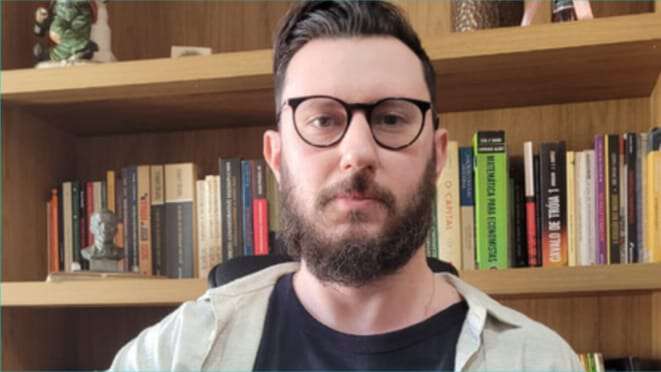In praise of the “common”: Love, Work, and Knowledge
More than two years have passed since the pandemic of Sars-COV-2 unsettled the world and the enormous disaster of the Brazilian federal government on taking necessary measures to prevent broad contamination and providing adequate medical treatment. All of this is now known to have been barbaric, absurd, and scandalous; that is to say, if we consider the fact that most of the 663,000 deaths could have been avoided if the vaccination had begun earlier.
The Brazilian Public Health System and some sort of existing social welfare system quickly and completely collapsed near the first semester of the pandemic, and the only hope came from the privatized common knowledge deployed by the Big Pharma companies to develop new vaccines. The decay of the “commons” into private corporations’ lobbies seemed inevitable as the complete commoditization of life seemed to get closer and closer to being a full reality. Nothing out of capital and nothing against it, one could say.
It did not take too long for the periphery communities to realize they were on their own, especially considering the facts that: the lower layers of the working class were exposed to precarious work conditions; the supplies of masks and other preventive health measures were not plentiful; and food insecurity began to spread among the poor – all these factors leading these communities to have higher risks of contamination and fatalities.
Struggling against this social and human catastrophe, several initiatives began to take place, such as the “community fridges,” where people could find and receive food for free, among others undertaken by popular movements and organizations, such is the case of CUFA (the Unified Center of the Favelas), the MTST (the Homeless Workers’ Movement) and the MST (the Landless Workers’ Movement).
CUFA, for instance, promoted a broad campaign which consisted in distributing meals, masks and alcohol to families living in vulnerable conditions in urban peripheries. Likewise, the MTST movement inaugurated the “solidarity kitchens,” places where families can eat free meals together and also develop social bonds and their attachment to the community as a whole. Finally, MST has also donated more than six tons of agroecological food and one and a half million lunchboxes since the beginning of the pandemic, addressing thousands of families from urban and rural communities.
These three initiatives enacted a complex and fruitful process of social engagement which allowed for the foundation of a particular political principle, which has been termed by researchers such as Christian Laval and Pierre Dardot as the “common.” In contrast to the concept of “commons,” the “common” is a principle based on the popular struggle against neoliberal reason and economic practices directed at extinguishing welfare services and enforcing privatization, which has increasingly gained traction since the beginning of the 21st century.
As a result of this popular struggle amidst the pandemic crisis, Brazilian civil society began to organize itself to lead the political debate in the direction of social distancing, science, and mass vaccination, instead of letting itself to be taken hostage by the obscurantist federal government. With this particular act of determination, the popular movements, grounded by the ”common,” have paved the way towards a radical critique of the “public” governance practices advocated by the neoliberal agenda, instigating the promotion of greater financial support to enterprises, single moms and unemployed workers approved by the Congress, the adoption of public policies aiming at the purchase and the distribution of vaccines, such as the PNI (National Immunization Plan), and the strengthening of SUS (Unified Health System) – the Brazilian public and universal health system.
The combination of love, work, and knowledge inscribes itself within the fight for the “common.” These social initiatives have created fertile ground for the production of social bonds and a ground-based democracy spearheaded by scientific and popular forms of knowledge. Therefore, far beyond the ultimate privatization of life itself, the Sars-COV pandemic has given birth to a spontaneous form of self-management deployed by the popular movements and organizations, which, as a result, has ended up linking the countryside to the streets, and the periphery communities to the State towards the defense of a common welfare system within the political boundaries of Western social democracy.
One could ask “what is the common?” and, if that question is posed, then one should promptly reply “it is the very fabric of the social bond which links each and every one to the conditions of freedom and well-fare, through the procedures of love, work, and knowledge.” Thus, bearing in mind the quote by Wilhelm Reich which says: love, work, and knowledge are the wellsprings of our lives, they should also govern it.
For further reading:
DARDOT, Pierre; LAVAL, Christian. Common: On revolution in the 21st century. Bloomsbury Publishing, 2019.

Write comment
Your email address will not be published. Comments are published only after moderation.
Comments ()